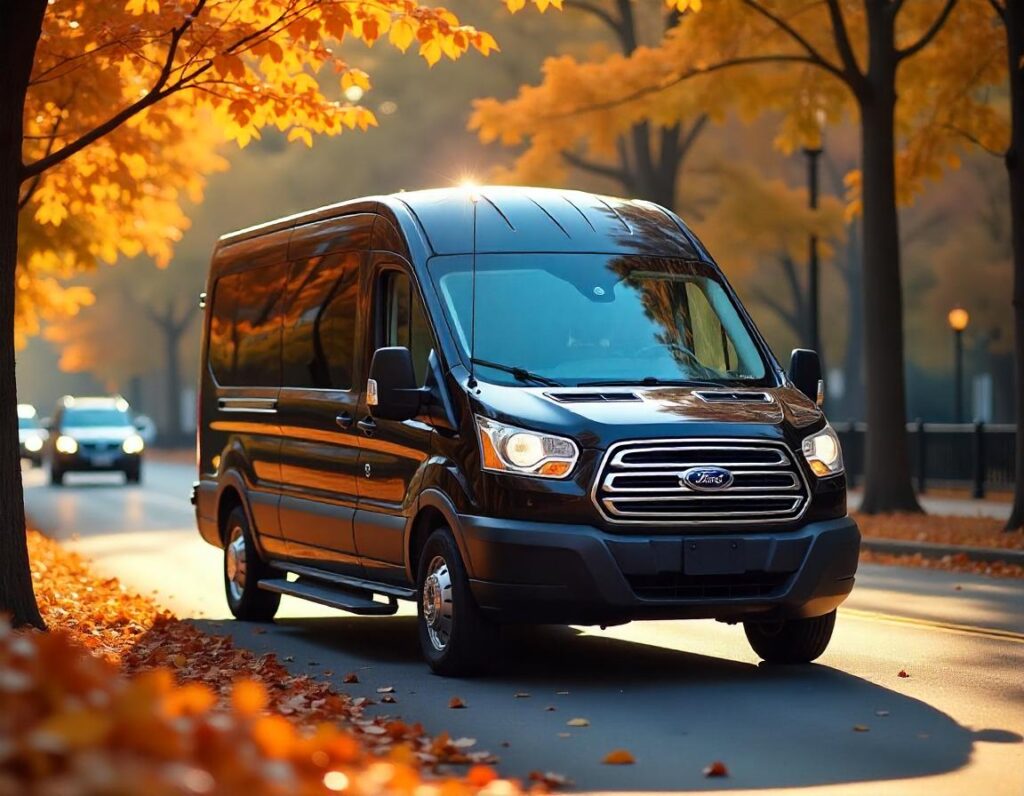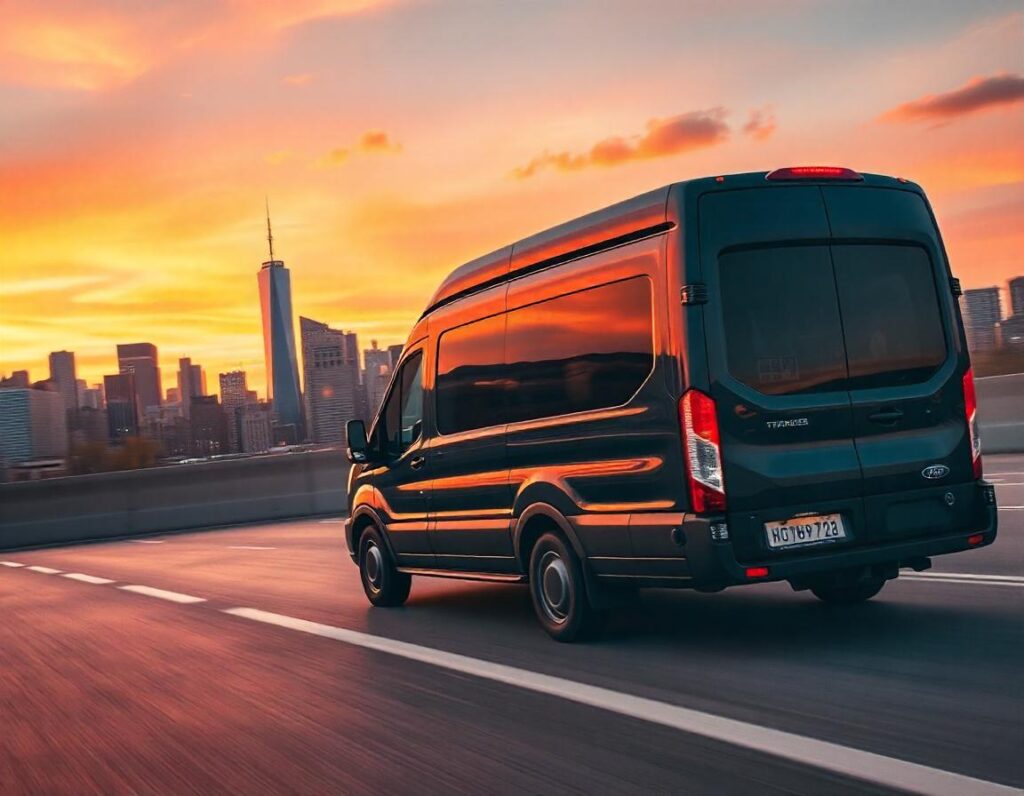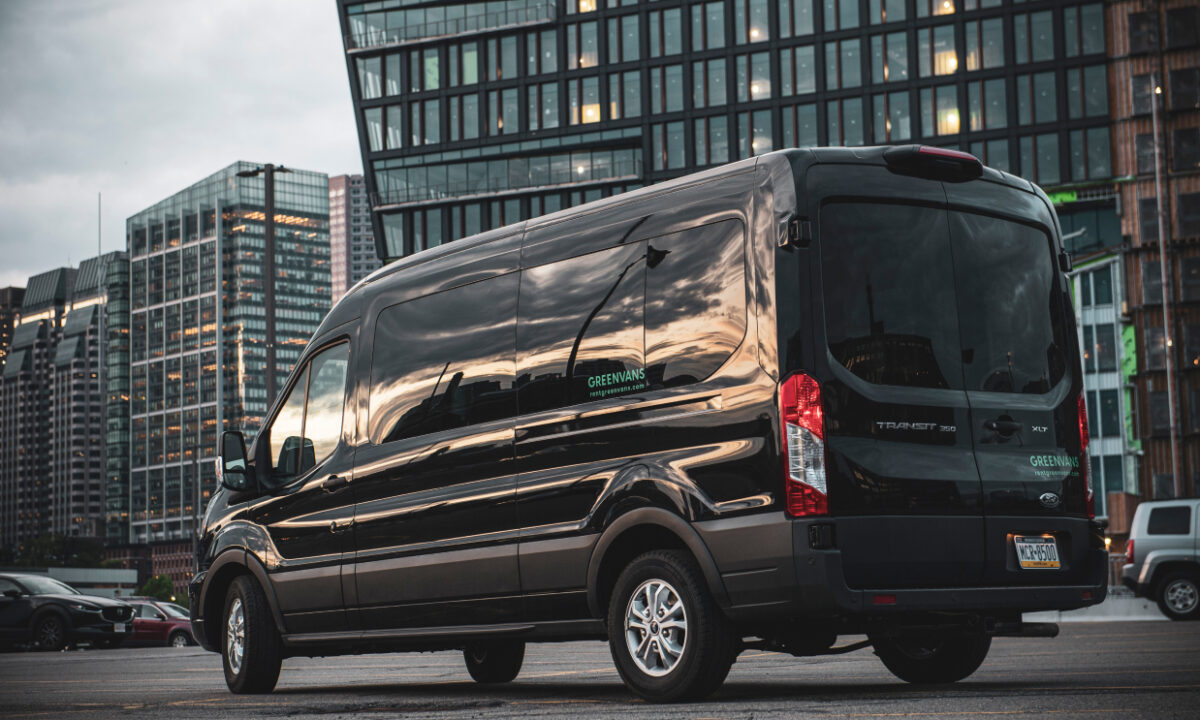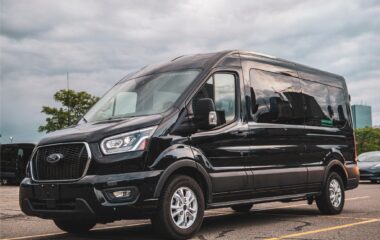Ever dreamed of exploring the diverse landscapes, funky small towns, and the natural beauty of the USA? Make that dream a reality by choosing a destination, packing your bags, and renting a van for a cross-country road trip you’re sure to remember forever.
In this guide, we’ll make tackling the logistics around your cross-country adventure easier. From choosing the right van rental to planning, budgeting, and packing for your trip, this list of best practices will have you jumping behind the wheel in no time.
Things to consider before renting a van
Before you rent a van for a cross-country road trip, think about:
- How many people are coming with you
- How much cargo you’ll be carrying
- How long you’ll be on the road
- How much you’re able to spend
- How you plan to get back home
This information will help determine which passenger van is the right size for you. With that said, let’s get into the different types of vans out there.
Types of vans available to rent for a cross-country road trip
Does choosing a van feel overwhelming? Let us help you with this simple breakdown of vans available.

Passenger vans
When it comes to cross-country rental vans, passenger vans are the most comfortable option. In addition to being spacious, they’re equipped with removable seat rows to accommodate any number of people and a large amount of bags.
The latest models come with a long list of safety features, a sliding side door for easy entry, and large windows for optimal sightseeing. For an adventure across the beautiful USA with the people you love to travel with, it’s a top choice.
Cargo vans
Because cargo vans are made to transport goods, they’re not the best van rental for a road trip. Most cargo vans seat two passengers to leave ample space for big, bulky items in the rear. Unless your purpose of going cross-country is to transport cargo, this isn’t an optimal choice.
Camper vans
Camper vans are excellent road trip vehicles for couples who like camping but don’t actually want to stay in the wilderness. They have a bed, a kitchenette, and even some bathroom facilities.
However, if your group is bigger than two and you’d prefer a hotel over a makeshift mattress, this may not be the ideal van rental for your cross-country trip.
Planning your route and stops
Once you’ve decided on the best van rental for your cross-country trip, it’s time to plan your itinerary! Here’s how:

Mapping out the journey
Take out a map – literally. Label your starting point and your final destination. Now, visualize the journey. Where do you picture yourself stopping? Which landmarks do you want to see? Are there any particular roads you want to drive, like Route 66 or Highway I-50?
Popular cross-country routes
Speaking of famous roads, here are the most popular coast-to-coast drives.
- Route 66: The “Mother Road” stretches from Chicago, Illinois, to Santa Monica, California. It’s an iconic highway rich in Americana landmarks like vintage diners and quirky roadside attractions.
- US Route 2: If nature is what you’re after, hit the road commonly called “The Great Northern,” driving through the country’s most breathtaking landscapes between Maine and Washington state.
- US Route 20: This road runs from Oregon’s coast to Cape Cod, Massachusetts, passing by iconic sites like Mount Rushmore and Yellowstone National Park.
- US Route 50: Also known as the “Loneliest Road in America,” you’ll pass through diverse landscapes like Lake Tahoe, and small towns as you make your way from Nevada to Maryland.
Budgeting for your cross-country van rental
Figuring out the finances of your trip before you go will eliminate stress later on. Here are a few things to keep in mind.
Rental costs and comparison
Calculate how many vehicles you’ll need for your group. Then, check with multiple agencies near you for daily rates, making sure all taxes and fees are included. Factor in extras like insurance, accessories, or tolls.
Fuel and maintenance expenses
Are you taking your personal vehicle? Include the cost of maintenance, budgeting for the unexpected. If you’re planning a van rental for your road trip, make sure vehicles are inspected beforehand.
Additionally, you’ll want to estimate what you’ll spend on gas based on the distance you plan to cover.
Read more on the blog: How to calculate gas for a road trip
Accommodations, overnight parking and campground fees
Beyond the price of lodging, you’ll want to account for extras like overnight parking fees. While some hotels include parking in the nightly rate, others only offer valet or nearby lot parking. Use local parking apps to determine the closest lots and their pricing.
If camping is more your style, don’t forget most campgrounds charge basic overnight fees that are often higher for non-residents. There may also be extra charges to use electricity and amenities, so incorporate these into your budget.
Packing essentials for a cross-country trip
Now that the trip’s coming up, it’s time to think about what to pack! Below are some reminders to make packing a bit easier.

Personal items
- Clothing: No matter the season, pack versatile clothing options suitable for various weather conditions and activities. Include layers, comfortable shoes, a rain jacket, and pajamas.
- Toiletries: When possible, bring travel-sized items like shampoo, conditioner, toothpaste, lotions, and any personal hygiene items you need.
- Medications: Bring your prescription medications, and extra for longer trips.
- Electronics: Don’t forget chargers for your devices, a portable power bank, and any entertainment you might want for the ride, like audiobooks and music playlists.
- Snacks and water: A van rental for your cross-country road trip has space for a cooler. Bring fruits and veggies, sandwiches, nuts and chips, and plenty of water.
Vehicle maintenance supplies
- Tool kit: Make sure it includes screwdrivers, pliers, and wrenches for minor repairs.
- Fluids: Pack extra oil, coolant, windshield washer fluid, and brake fluid.
- Tire supplies: Have a spare tire, jack, tire iron, and tire pressure gauge.
- Jump starter: A portable jump starter can be invaluable if your battery dies while on the road.
- Emergency flares: These can help alert other drivers if you encounter vehicle trouble.
Keep in mind, if you decide on a Greenvans van rental for your cross-country trip, you’re guaranteed 24/7 roadside assistance.
Emergency essentials
- First aid kit: It’s perfect for cleaning up minor injuries or allergic reactions.
- Roadside assistance information: Keep your roadside assistance contact information handy in case of breakdowns or emergencies.
- Blankets or sleeping bags: An 8-passenger rental van has plenty of space to create a cozy sleeping nook if needed.
- Paper maps: While smartphones are great for navigation, having physical maps as a backup can be useful in areas with poor cell service.
Read more on the blog: Car packing tips and tricks for your next adventure
Finding the best van rental services
Where is the best place to rent a van for a cross-country trip? It all boils down to this decision.
National/commercial vs. Local/independent rental companies
Many companies offer cross-country van rentals, one-way and round trips. The question is, do you want to go with a major rental agency or an independent one? While big-box names might have more locations and a larger fleet of vehicles, local companies are known to offer exceptional service and a personalized touch.
A cross-country road trip should be the adventure of a lifetime. Choosing an agency that’s readily available to answer your questions and offer advice can make all the difference.

Preparing for the pick-up and drop-off
Now that you’ve chosen the ideal rental van, let’s go over the logistics of the pick-up and drop-off.
Inspection checklist
Before you drive cross-country with your rental van, conduct a thorough inspection to ensure everything is in order. Check for:
- Exterior dents or scratches
- Tire inflation level and tread wear
- Functionality of headlights, brake lights, and turn signals
- Interior cleanliness and seat condition
- Test seat belts
- Warning lights or alerts on the dashboard
- Properly working windshield wipers and HVAC systems
- Spare tire that’s in good condition
- Fluid levels including fuel, oil, and wiper fluid
Understanding the rental agreement
Before signing the rental agreement, make sure you understand all terms and conditions. Get clear on:
- Rental duration: Confirm the start and end dates of your rental period.
- Drop-off procedure: Familiarize yourself with the return location and expectations.
- Mileage limitations: If the daily limit is too low, ask about unlimited mileage options.
- Insurance coverage: Find out if you can use your own, or if a rental insurance package would be better.
- Fuel policy: Confirm if the vehicle needs to be returned with a full tank of gas.
- Additional fees: Look out for potential extra charges such as late returns, additional drivers, or cleaning fees.
Return process and avoiding extra charges
To ensure a hassle-free return process and avoid extra charges, follow these simple steps:
- Return the van as clean as you rented it and free of your personal belongings.
- Refuel the van to the level specified in your rental agreement.
- Return the van on time to avoid late fees.
- Take photos of the van upon return, including mileage and fuel level, in the event you need proof of its condition in the future.
Tips for a smooth and enjoyable trip
Maximize your enjoyment on this road trip of a lifetime! Take into account these tips to make the ride as smooth as possible.
Driving tips and safety precautions
Getting plenty of sleep the night before a long drive is crucial. Once you get going, plan to stop every two hours to stretch, hydrate, and refresh yourself. Try to switch drivers often, and stay alert behind the wheel by keeping the van cool and the conversation flowing.
Maintaining comfort during long drives
Wear comfortable, breathable clothing on the road. Make sure your seat is property adjusted and bring a cushion if necessary. While it might seem counterintuitive, it’s a must to stay hydrated. The more water you drink, the more breaks you’ll take, so this will help you break up the drive.
Entertainment options for the road
Road trips are a great way to catch up on the latest podcasts or audiobooks. It’s even more fun when you choose entertainment that coincides with your journey. Choose a classic, like “On the Road” by Jack Keruoac, or opt for a contemporary bestseller set in your final destination.
For a full list of ideas for on-the-road amusement, check out these 30 road trip essentials to add to your packing list.

FAQs about renting a van for a cross-country trip
What are the requirements for renting a van for a cross-country trip?
Requirements to secure a van rental for a cross-country trip are straightforward:
- Renters must meet the age limits
- Drivers must have a valid Class E drivers license
- Drivers must have liability insurance
- Renters must have an acceptable form of payment, i.e. a valid credit card
Are there any mileage limits or additional fees for long-distance travel?
Most rental agencies have a daily mileage limit that, when exceeded, will incur fees. If you feel that the daily minimum for your van rental is too low, ask about purchasing an unlimited mileage package.
What insurance options are available for a cross-country van rental?
All cross-country rental van agencies require primary liability coverage that meet state-imposed minimums. Renters can choose to supplement basic coverage with Renter’s Collision Protection (RCP), Personal Effects & Accidents (PEI/PAI), and Supplemental Liability Insurance (SLI).
Can I drop off the rental van at a different location from where I picked it up?
Greenvans offers one-way van rental options, as well as customized pick-up and drop-off alternatives, so you can return the van to a location most convenient to you.
Explore the USA, one state at a time! Here’s your free cross-country van rental quote.
Share:


